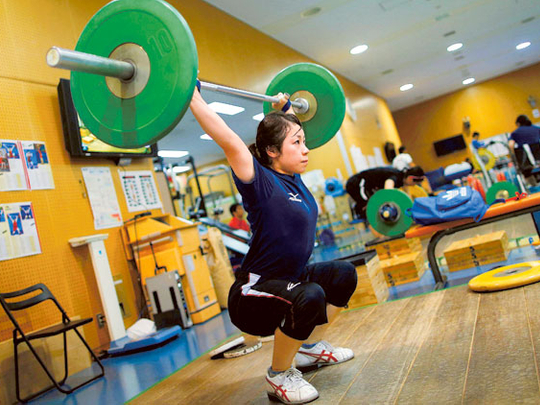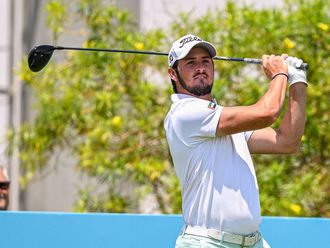
Tokyo: Japan heads to the Asian Games with the team’s top two symbolic leadership roles filled by women for the first time, in what may mark a growing focus on women’s sports in its traditionally male-dominated society.
Giving the roles of captain and flag bearer to women could be seen as a nod to Prime Minister Shinzo Abe’s efforts to raise the profile of women in the country.
The issue of women’s sport in Japan came sharply into focus in 2012, when the women’s football team rode economy class to the London Olympics despite having won the World Cup a year earlier, while the less successful men’s team flew business class.
“I’m very nervous, but I want to do my best,” said captain Hiromi Miyake, a 28-year-old weightlifter who won silver at the 2012 London Olympics.
“The Asian Games is the biggest competition after the Olympics, so since it is one point on the road to the Olympics I want to do my best — and hope it leads to me being selected for the Olympics.”
The flagbearer for the Asian Games in Incheon, west of Seoul, is Kaori Kawanaka, an Olympian archer.
Once an Asian Games powerhouse, Japan dominated the medals table from the inaugural Games in New Delhi in 1951 through the 1978 Bangkok Asiad.
China took control of the medals table at New Delhi in 1982 and Japan has battled neighbours South Korea for second place ever since.
Japan’s 716-strong delegation will include Olympians such as judoka Kaori Matsumoto, along with less well-known figures.
Miyake, who studied piano from childhood before switching to weightlifting and who won a silver medal in the 48-kilogram category at the 2012 Olympics as well as a bronze at the 2006 world championships, will be competing in the same weight class at the upcoming Games.
Practicing for about seven hours a day, five times a week, the petite Miyake — all of 4ft 9in tall — eats, trains, and sleeps at a training facility in suburban Tokyo.
Her strongest competitors will be from China and Korea, but both Miyake and Japanese sports officials played down any hint of regional rivalry, preferring to focus on more long-term goals such as paving the way for success at the 2016 Summer Olympics in Rio de Janeiro or Tokyo’s Games in 2020.
“I hope Japan, China, and South Korea will perform well at the Games, pushing other Asian nations to do well, and ultimately contributing to a strong outcome for Asian countries at the upcoming Olympics,” said Naoya Yanagiya, the director of sports department at the Japanese Olympics Committee (JOC).
He said that gender had not been an issue when choosing the captain and flag bearer.
“Gender is not considered when choosing the captain and flag bearer. We check on their availabilities and past performances,” he added.
Even so, the focus on female athletes is a bit of a change in Japan, where male athletes have often had better treatment — and better financing.
“I think this is a once in a life time opportunity so, although I’m not used to these kinds of things, I want to challenge myself and learn from this,” Miyake said.
The Asian Games is a multi-sports event held every four years hosted by the Olympic Council of Asia. A total of 45 countries will compete in 36 sports including swimming, judo and wrestling.
The opening ceremony will be held on September 19 and the Games will close on October 4.












